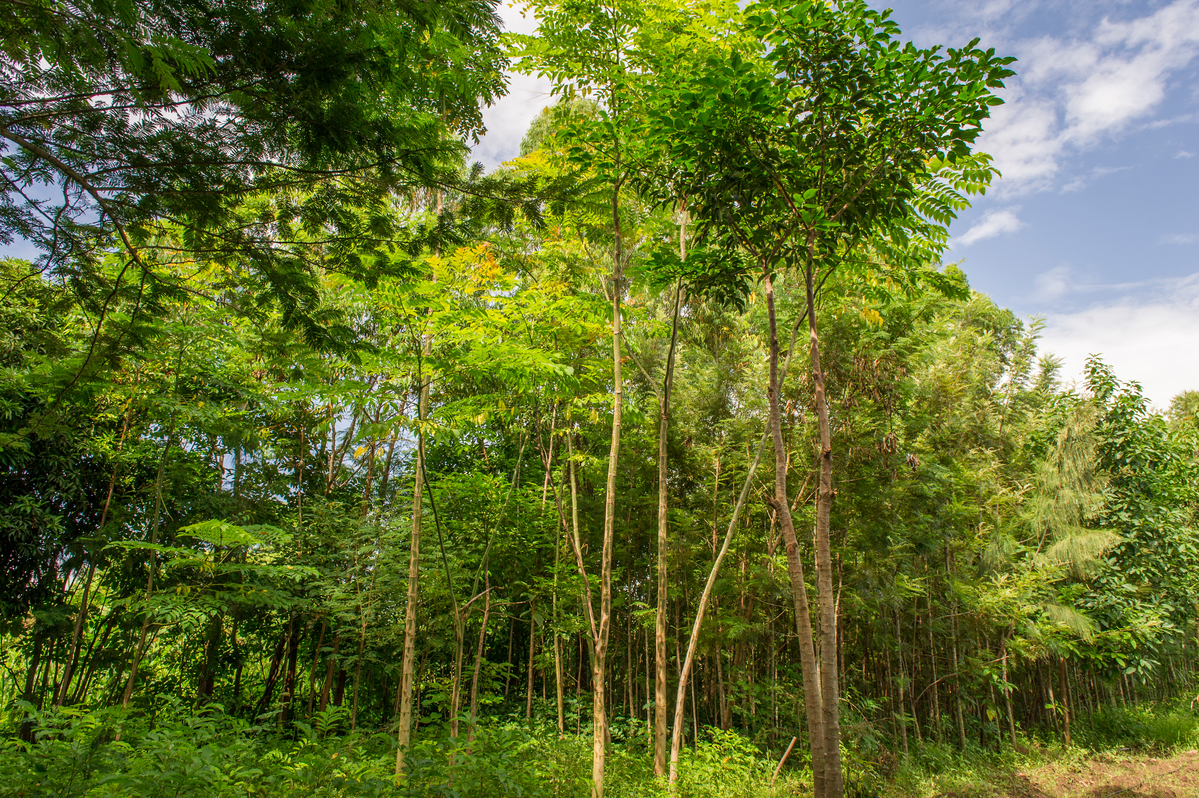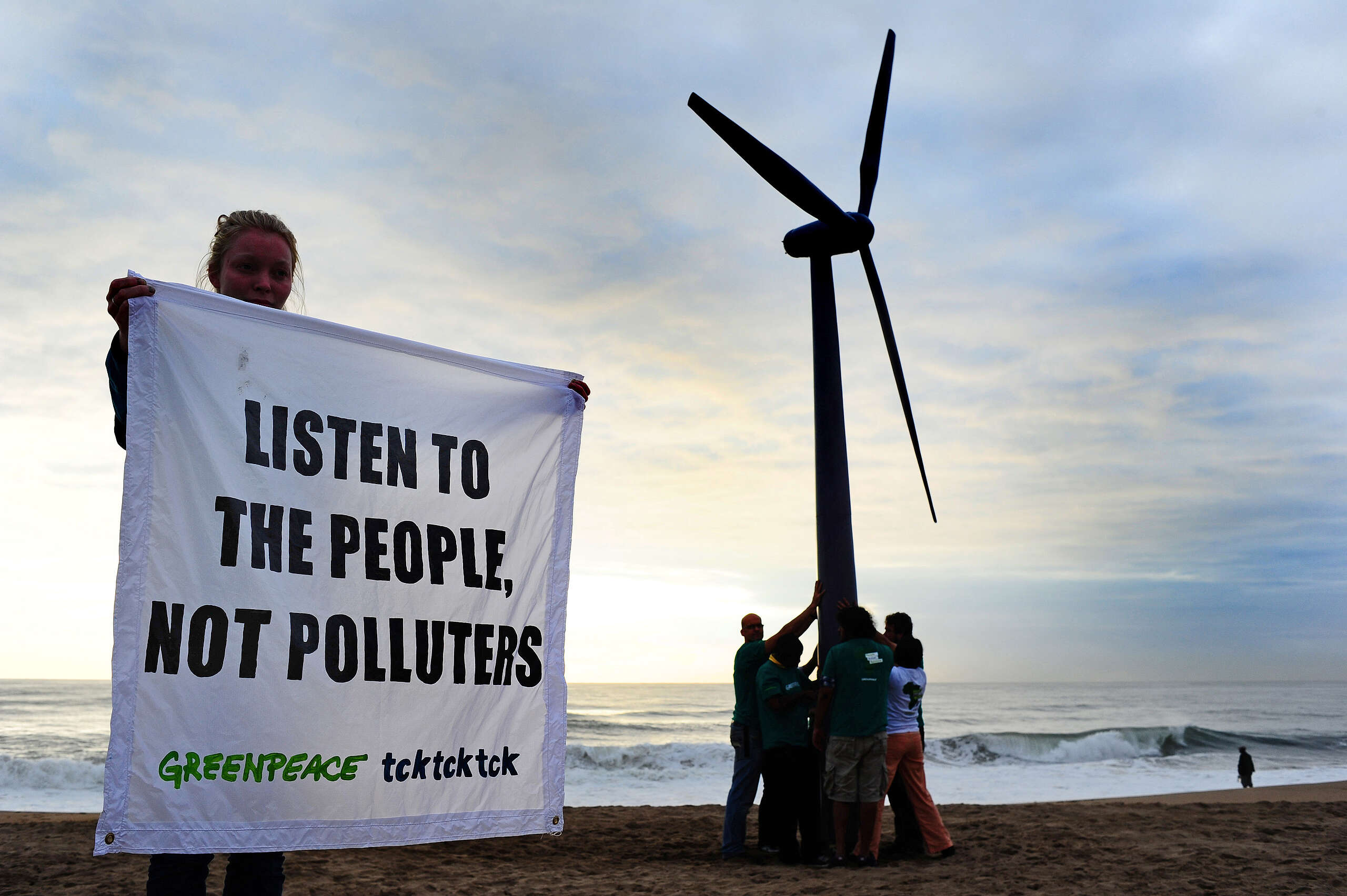
Johannesburg, 23 September. An agreement between the governments of France and Norway and the Republic of Congo to protect its rainforest and peatlands gives a green light to oil exploitation in one of the world’s most sensitive ecosystems.
French President Emmanuel Macron, on behalf of the Central African Forest Initiative (CAFI), and the Congolese president Denis Sassou Nguesso, signed the $65 million agreement on 3 September[1]. Six members of Sassou’s family had been summoned by a French judge to appear on the same day in relation to an “ill-gotten gains” case, but the hearing was rescheduled at the last minute. Exactly a week after the signature of the Paris agreement, the Republic of San Marino announced the seizure of $19 million of Sassou’s personal assets[2].
The agreement to protect the Republic of Congo’s forests comes only two weeks after the Congolese regime celebrated the “discovery” of oil deposits in the Cuvette Centrale peatlands that it said could quadruple national oil production. The peatlands are estimated to contain 30 billion tons of carbon – the equivalent of nearly 20 years of fossil fuel emissions of the United States[3].
Instead of expecting a ban on oil drilling in the peatlands, the agreement calls merely for the “minimization of direct and indirect impacts” of oil and mining activities there. And it allows for clearing of high carbon and high conservation value forests where this is deemed to be of “vital interest to the national economy.” Among the main beneficiaries of the announcement could be French oil giant Total, which reportedly holds rights to two of Congo’s onshore oil blocks[4].
CAFI is almost entirely funded by the Norwegian government as part of its global effort to promote a carbon offsetting scheme for reducing emissions from deforestation and degradation, known as REDD+[5]. Norway recently announced its own plans to expand oil production in the Arctic[6].
The accord is the latest in a long line of highly controversial international agreements with tropical forest countries to tackle deforestation. Last month Norway suspended a $33 million disbursement to Brazil’s Amazon Fund following a surge in deforestation and non-cooperation by the far-right Bolsonaro government[7]. In the Democratic Republic of the Congo, CAFI was forced to suspend part of a $200 million agreement in 2017, but the regime proceeded to illegally award five logging concessions to one of the country’s most senior generals under EU and US sanctions[8]. A Norway-funded REDD project in Tanzania collapsed when large amounts of money were stolen by individuals close to the president[9].
Simon Counsell, Executive Director of the Rainforest Foundation UK, said: “The agreement between CAFI and the Republic of Congo is the latest in a long line of badly designed programmes, and is unlikely to protect any forests. The Norwegian parliament needs to scrutinize how such a potentially beneficial programme could have gone so badly off-track. It seems that interests other than protecting forests are being served.”
Victorine Che Thöner, International Project Leader of Greenpeace Africa’s Congo Basin Forest Campaign, said: “The CAFI agreement with the Republic of Congo is yet another example of France’s lingering interests and political meddling in its ex-colonies. It is time for France and other international donors to rethink their notion of ‘development’ and pressure the Congo Brazzaville government to ban all industrial activities in its rainforest”.
ENDS
*****
For interviews and more information:
Victorine Che Thöner, International Project Leader of Greenpeace Africa’s Congo Basin Forest Campaign, [email protected], +49 157 79 59 89 83,
Tal Harris, Greenpeace Africa International Communications Coordinator, [email protected], +221 776730496
Rachel Parker, Head of Media and Communications, The Rainforest Foundation UK, [email protected], Tel +44 (0) 20 7485 0193 (
Newsdesk Greenpeace Africa: [email protected]
[1] President Sassou Nguesso is one of Africa’s longest serving rulers, accused of siphoning off his country’s riches. www.africaintelligence.fr/lc-/premier-cercle/2019/09/11/la-convocation-qui-a-failli-perturber-le-voyage-parisien-de-denis-sassou-nguesso,108372039-art
[2] www.telegraph.co.uk/news/2019/09/12/san-marino-seizes-19m-congo-dictator-spent-100000-crocodile/
[3] Far from declaring the peatlands a no-go zone for industry, the signatories of the 22 March 2018 Brazzaville Declaration – touted by UN Environment as “historic” – promised merely to “Promote best management practices in peatland areas covered by economic activities […].” (https://wedocs.unep.org/bitstream/handle/20.500.11822/25351/Brazzaville_Declaration.pdf?sequence=1&isAllowed=y “[…] so that they are managed in a sustainable and climate-smart way, that is, in such a way that [they] are neither drained, nor degraded.”). What “best management practices” means to the Sassou regime became quite clear less than three weeks later, when it issued an environmental conformity certificate to operators of the Ngoki oil block, of which 64% is peatland. (www.sgg.cg/JO/2019/congo-jo-2019-17.pdf (p. 335))
[4] www.congolr2018.com/the-blocks
[5] www.telos-eu.com/fr/economie/total-et-les-forets.html , www.un-redd.org/
[6] https://oilprice.com/Latest-Energy-News/World-News/Norway-Plans-To-Expand-Arctic-Oil-Exploration-Areas.html
[7] www.theguardian.com/world/2019/aug/16/norway-halts-amazon-fund-donation-dispute-brazil-deforestation-jair-bolsonaro
[8] www.globalwitness.org/en/press-releases/congolese-general-sanctioned-by-us-and-eu-for-human-rights-abuses-is-trading-in-illegal-logging-permits-over-drcs-climate-critical-forests-global-witness-reveals/
[9] https://redd-monitor.org/2013/07/16/corruption-in-tanzania-presidents-men-took-over-norwegian-aid-money-disappeared/



